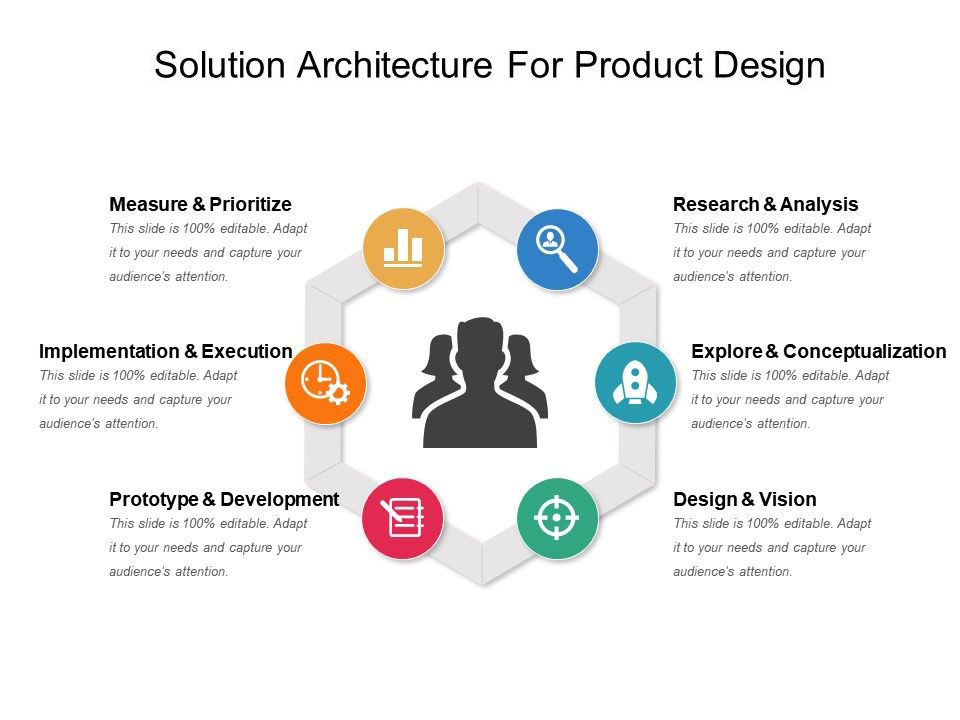6 Benefits Of Hiring A Solution Architect For Your Business


There is a rather famous saying that loosely translates to doing the work as less important than making sure everyone does their work perfectly, and the end result is as perfect as possible. A lot of people do not realize there are a lot of things that need a little smoothing over before, during, and after a project. That is why solutions architects are hired to make sure that everything runs smoothly. That is what the name suggests as well. The solution architect is someone who designs hardware and software.
Software development needs a solutions architect who has to have technical skills. They should also have the ability to analyze the business. Moreover, they should have sufficient knowledge about handling a project. They are responsible for creating a comprehensive architecture for software solutions. They provide proper strategies throughout the development process.
Make sure that the new solution fits the existing structure from all technical perspectives, business, user, and effects.
They will have to incorporate with all the teams involved in the development process. They should know about every product and service work in architecture. The software architect co-operates with all groups involved in the development process. You should see every product; they will eventually oversee the successful delivery of the quality and product to its end-user.
The architects need to be with the particular project from the start as it has to foresee what is to come in the future. Overseeing if the right technology is being chosen for business problems. They manage the architectural concerns to make sure that they are effective and productive outcomes.
What is a Solution Architect?
A solution architect should have a clear vision for the project and a clear understanding of the client’s business needs. Moreover, they are responsible for translating the idea for the project trial. They pay special attention to the entire development life cycle and are also involved in future updates.
Their primary responsibilities include leading the process of integrating IT systems that specifically meet the organization’s requirements. They have to conduct a system architecture evaluation and collaborate with the project management.
The architect also analyzes the project constraints and makes sure to bring an alternative timely so that there is no delay. Their job includes making the risk less severe and fixing technical issues. They basically act as supervisors. They define the path between the server and the application.
Main solution architect skills
1. Super communication
It is essential for a solution architect to make sure that they communicate effectively with stakeholders, software management, and developers. The need to be involved in the software development process is essential. They have the central role in every project and therefore need to be able to explain and understand everyone’s point of view. The main reason why they have to listen, advise and influence.

2. Project management and resource planning
You have to make sure that the project runs efficiently and without any issues. They should have an impact to ensure that all the jobs are very well done. They should have the expertise in managing as they are responsible for focusing on business goals, including hiring new people and understanding how to achieve them within the set time-frame and within the given budget.
3. In-depth analysis
Software architecture and systems incorporated into it are multiple components that operate together. A solutions architect needs to be very cautious about those elements, as overlooking something may delay the development process, leading to breakdowns or making the software solution inadequate.
They should be aware of the technical specifications of not only software but also hardware and perform analysis of different business layers. As they are part of the project from beginning to end, and that is why they need to be aware of all information and remember all the details and ideas to validate and approve them accordingly.
4. Risk identification and management
A solution architect must be qualified to examine and pinpoint short- and long-term risks that may cause technical issues and hinder business processes in the future.
5. Technical skills
Expectedly, the role of a solution architect needs specialized education and hands-on knowledge across all primary areas of the software development process, as well as hardware engineering expertise for software projects that depend on hardware.
Thus, a solutions architect should have at least 6 to 8 years of experience in the following areas:
- Business analysis
- IT infrastructure
- Software architecture design
- Cloud development
- DevOps
6. Quality delivery is the focus
This has various components and also acts as a support system for reference. It helps in achieving quality output so that you can have a blueprint of the functions and requirements. Software development solutions are built following the best practices that are consistently utilized. It depends on keeping the development team aware.
Moreover, it keeps track of the progress. It defines and identifies things like performance, the quality of the solution, and security, which helps determine what the future holds. Solution architecture is responsible for improving the solution quality. That is how one can quickly identify separate components and the nature of the communication. It allows us to recognize the qualities and even the defects beforehand to make the necessary changes and thus the product’s life cycle.
Some Benefits of Hiring a Solution Architect for Your business
There are a number of advantages of hiring a solutions architect. Here are some details which will help you determine whether you should hire one for your company or not. One of the primary reasons for employing a solution architect is that they will make sure that all your software dealing is done without a hassle. The solutions architect can help you construct and develop the latest technology solutions and bridge the gap between technical and non-technical experts who are involved in the IT project.
As the operation always digs a deep hole in the pocket and is therefore heavy on the budget and highly risky, every business should have a solutions architect to execute new solutions and scale them successfully. The solution’s architecture can be presented to a company’s enterprise structure through a software architecture consulting service.
Let’s take a glance at the reason why solution architects are so important.
Improved Return on Investment
When you hire a great solution architect, then you do not have to worry about your ROI. They have a significant impact on the development initiative. The expert ensures that the company is well updated on the market trends, making it easier to see its mark. This includes utilizing the best tech ingredients and the business dealings that need to be incorporated. Therefore the project needs to succeed, which is the solution’s boost.
Achievement of Customer Plans
A solutions architect not only focuses on choosing the right technology but also keeps in mind all the requirements of the stakeholder. This is the solution that they provide, which bridges the gap between the two parties. A solution architect follows the best practices to supply all kinds of solutions to the tech world and therefore transform all your business goals.
No Deadlines are Missed
A solution architect not only keeps broad technical knowledge of the development team management capacities but also works with the business without any hurdles. There are times when they even work directly with the consumer when deciding schedules. These capabilities of an SA specialist not only help in aligning the solution being developed but also the client’s objectives while remaining well within the project launch deadline.
Competitive Benefit
There is no shortage of technological advancements in this era, and that is, every year, there are new innovations that overflow the market. With a solutions architect, the client can stay updated on advantageous solutions to any problems they might be facing and effectively evaluate the latest tech trends. This allows the client to release a product with cutting-edge technology and a robust competitive advantage.
Budget Management
Solution architects present architectural descriptions detailing all information included in the development endeavor’s cost and the resources required. This allows the client to set up better budgets for the digital transformation they desire and avoid fine-print costs that may arise along the way.
Project Timeline
It is very typical for costs to build up if the development project’s execution takes more time than earlier settled upon. A solutions architect can easily define the amount of effort and resources required for a successful project to be complete, thus establishing an accurate project timeline.
Ending Note
A solutions architect is accountable for creating and enforcing IT systems architectures that fulfill the specified business requirements. Their function begins with collecting the necessities, understanding the specifications, making sure that the systems are in place, and operating closely with stakeholders to provide the right solution.
In general, the solution architect’s position is to clarify the business needs to the development team and direct them in constructing a product that can solve real business issues effectively. The position requires reliability and a wide range of IT skills and proficiency. With companies increasingly relying on software and emerging technologies, the role of a solution architect will continue to gain weight.



